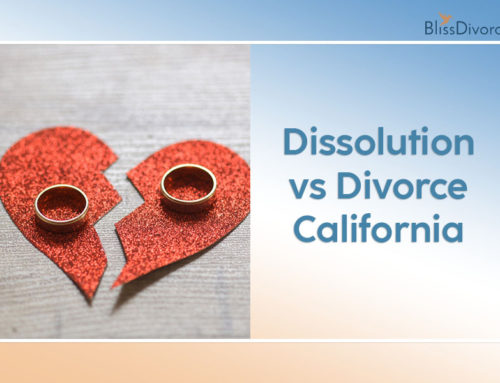When Is A Prenuptial Agreement Unenforceable For A Divorce In California?
No one goes into marriage thinking it will end in divorce, but it is a good idea to have an agreement in place. It’s essential to remember that every state has different laws for divorce and prenuptial agreements. However, in most states, the divorce law is no longer applicable if a couple has a contract in place – a prenuptial agreement (aka prenup). Whether it is enforceable or unenforceable depends on the following:

Source: shutterstock.com / Photo Contributor: Africa Studio
Unconscionability
One of the most common reasons a prenuptial agreement may be deemed unenforceable is if it is deemed “unconscionable.” This means that the terms of the agreement are so one-sided and unfair that they shock the conscience of the court. In California, a prenuptial agreement will be considered unconscionable if it:
- Was entered into under duress or undue influence
- Was not entered into voluntarily
- Was not fully disclosed or understood by one party
- Does not provide for the basic needs of the party challenging the agreement
- Is not fair and reasonable at the time of enforcement
For example, if one party was forced to sign the prenuptial agreement under threat of not getting married or if one party did not fully understand the terms of the agreement due to a language barrier, the agreement might be deemed unconscionable.
Lack of Independent Legal Counsel
Another reason a prenuptial agreement may not be enforceable is if one party did not have independent legal counsel when signing the agreement. In California, it is required that both parties have their own attorneys review the agreement before signing. If one party did not have an attorney, or if the attorney did not explain the terms of the agreement to the party, the agreement may be deemed unenforceable.
Fraud or Misrepresentation
A prenuptial agreement can also be deemed unenforceable if one party committed fraud or misrepresentation when entering into the agreement. For example, if one party hid assets or lied about their financial situation in order to influence the terms of the agreement, the agreement may be deemed unenforceable.
Change in Circumstances
Lastly, a prenuptial agreement may not be enforceable if there has been a significant change in circumstances since the agreement was signed. For example, if the agreement did not provide for the needs of the parties at the time of divorce and one party is now unable to support themselves, the agreement may be deemed unenforceable.
It’s important to note that even if a prenuptial agreement is deemed unenforceable, it does not mean that the parties will not have to divide their assets and debts. If the agreement is not enforceable, the court will use California’s community property laws to divide the assets and debts.

Source: shutterstock.com / Photo Contributor: Bacho
Duress or Undue Influence
One of the most obvious situations in which a prenuptial agreement is not enforceable is when it is entered into under duress or undue influence. Duress refers to the use of physical or emotional pressure to force someone to sign an agreement, while undue influence refers to the use of psychological or emotional manipulation to coerce someone into signing an agreement.
In California, courts will look at a number of factors to determine whether duress or undue influence was present, including the timing of the agreement (i.e., whether it was signed close to the wedding date), the presence of independent legal counsel, and whether one party had a significantly greater bargaining power than the other.
Lack of Full Disclosure
Another situation in which a prenuptial agreement may not be enforceable is when one party does not fully disclose their assets or financial situation. In California, both parties are required to provide full and accurate disclosure of their assets and debts prior to signing a prenuptial agreement. If one party did not disclose all of their assets or if they provided false or misleading information, the agreement may be deemed unenforceable.
Lack of Fairness and Reasonableness
A prenuptial agreement may also be deemed unenforceable if it is not fair and reasonable at the time of enforcement. This can happen when the agreement is entered into under certain circumstances, but the situation of both parties changes, and one party is now in a worse position. For example, if an agreement was entered into when one party was healthy, but one party became disabled, and the agreement did not provide for their basic needs, the agreement may be deemed unenforceable.
Modification or Revocation
A prenuptial agreement can also be deemed unenforceable if it has been modified or revoked by the parties. In California, a prenuptial agreement can be modified or revoked by mutual consent of the parties. However, if one party revokes or modifies the agreement without the other party’s consent, the agreement may be deemed unenforceable.
Public Policy
Lastly, a prenuptial agreement may not be enforceable if it goes against public policy. This can happen when an agreement contains provisions that are illegal or that violate the rights of one party. For example, if an agreement contains a provision that waives one party’s right to alimony or child support, the agreement may be deemed unenforceable.
It’s important to note that even if a prenuptial agreement is deemed unenforceable, it does not mean that the parties will not have to divide their assets and debts. If the agreement is not enforceable, the court will use California’s community property laws to divide the assets and debts.

Source: shutterstock.com / Photo Contributor: Tero Vesalainen
Lack of Time for Review
Another situation where a prenuptial agreement may not be enforceable is when one party does not have enough time to review the agreement before signing. In California, both parties are required to have a reasonable amount of time to review the agreement and consult with an attorney before signing. If one party did not have enough time to review the agreement, or if the agreement was presented at the last minute, the agreement may be deemed unenforceable.
Ambiguity
Prenuptial agreements may also be deemed unenforceable if they contain ambiguous or unclear language. For example, if the agreement is not specific about how assets will be divided in the event of a divorce, this may lead to confusion and disputes. Additionally, if the agreement contains language that is difficult to understand or interpret, it may be deemed unenforceable as it would not provide the parties with the certainty they sought to achieve through the agreement.
Invalid Provisions
A prenuptial agreement may also be deemed unenforceable if it contains provisions that are invalid under California law. For example, if the agreement includes a provision that waives one party’s rights to a fair trial, this would be invalid as it would violate the party’s constitutional rights. Additionally, if the agreement includes a provision that is
Non-compliance with Formalities
Another situation where a prenuptial agreement may not be enforceable is when it does not comply with the formalities required by California law. In California, prenuptial agreements must be in writing, signed by both parties, and notarized. If the agreement does not comply with these formalities, it may be deemed unenforceable. Additionally, if the agreement is not translated into a language that both parties understand, it may also be deemed unenforceable.
Waiver of Legal Rights
Prenuptial agreements may also be deemed unenforceable if they include provisions that waive one party’s legal rights. For example, if the agreement includes a waiver of the right to seek a divorce, this would be deemed unenforceable as it would be against public policy. Similarly, if the agreement includes a waiver of one party’s rights to seek spousal support or child support, this may also be deemed unenforceable as it would negatively impact the well-being of the party and the children.

Source: shutterstock.com / Photo Contributor: zimmytws
Conclusion
In conclusion, prenuptial agreements can provide couples with a sense of security and certainty in the event of a divorce. However, there are certain situations where a prenuptial agreement may not be enforceable in California. These include situations where the agreement is entered into under duress or undue influence, one party did not fully disclose their assets or financial situation, the agreement is not fair and reasonable at the time of enforcement, the agreement has been modified or revoked without mutual consent, or it goes against public policy, contains unconscionable provisions, lack of time for review, ambiguity, invalid provisions, non-compliance with formalities, waiver of legal rights, and unforeseen circumstances. It is important for couples to consult with attorneys and ensure that their prenuptial agreement is fair, reasonable, fully disclosed, and fully understood by both parties before signing.
*This article is for informational purposes only and is not intended to provide legal advice. If you require legal advice, please contact a licensed attorney in your local area.




